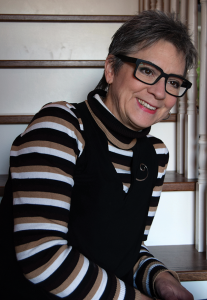Atheist Pastor Deemed Unsuitable for Ministry
 Gretta Vosper
Gretta Vosper As reported by the Washington Post and other international media outlets, Gretta Vosper’s tenure as an ordained United Church of Canada minister appears to be coming to an end. Vosper, minister for the Toronto-based West Hill United Church, is being challenged by the seemingly progressive United Church of Canada for her lack of traditional beliefs. Last week, a special committee of the Toronto Conference of the United Church requested that a formal hearing be convened by the General Council of the United Church to determine her fate as a minister.
“In our opinion, she is not suitable to continue in ordained ministry because she does not believe in God, Jesus Christ, or the Holy Spirit,” the report states. “Ms. Vosper does not recognize the primacy of scripture, she will not conduct the sacraments, and she is no longer in essential agreement with the statement of doctrine of The United Church of Canada.”
In the report, the committee requested that the General Council of the United Church of Canada conduct a formal hearing to consider whether to place the name of the Rev. Gretta Vosper on the Discontinued Service List (Disciplinary). The date of this hearing has not been set.
Until this formal hearing, the committee confirmed that Vosper can remain in ministry at West Hill United Church and that no further restrictions will be placed on her functioning at this time. After months of silence, the Moderator of the United Church, the Right Reverend Jordan Cantwell, issued a statement encouraging humility and compassion during the process. In particular, she stressed how “diversity in our church has been and will continue to be a source of strength, so long as we do not allow our differences to divide us.”
In stating that she no longer believes in a theistic or interventionist God, Vosper’s views appear to be in sync with the growing trend of those who are religiously unaffiliated, otherwise known as “nones,” a number that has now risen to one-fifth of the US public—and a third of adults under thirty. Even though only 6 percent of adults classify themselves as atheist, Vosper spoke via telephone about her decision to openly identify as such: “If I had just continued to describe myself as a nontheist or a non-realist, there would be no problem. I chose to call myself an atheist in solidarity with those people who are being murdered for not believing in God.”
In the past, the United Church of Canada and its US counterpart, the United Church of Christ, have been at the forefront of public opinion. Church leadership did not wait for a majority opinion before speaking out publicly on other controversial issues such as the ordination of LGBTQ clergy.
In an appearance on Ryan Bell’s podcast Life After God, Vosper and Bell spoke about the United Church of Canada’s inability to take a leadership role in the shift toward secular-yet-spiritual communities. In Vosper’s estimation, “The most progressive denomination in the world, as far as I’m concerned, has drawn a line in the theological sand and said, This is as far as we’re going to go. What does this say for all liberal, mainline denominations?” Bell responded, “The church can only be progressive as long as it continues progressing.”
In this respect, the United Church of Canada, along with other mainline, liberal denominations based in Canada and the United States, appears to be at a standstill. By ignoring this growing body of secular spiritual seekers, the church has chosen not to soar like an eagle in search of new heights but to assume an ostrich position.
